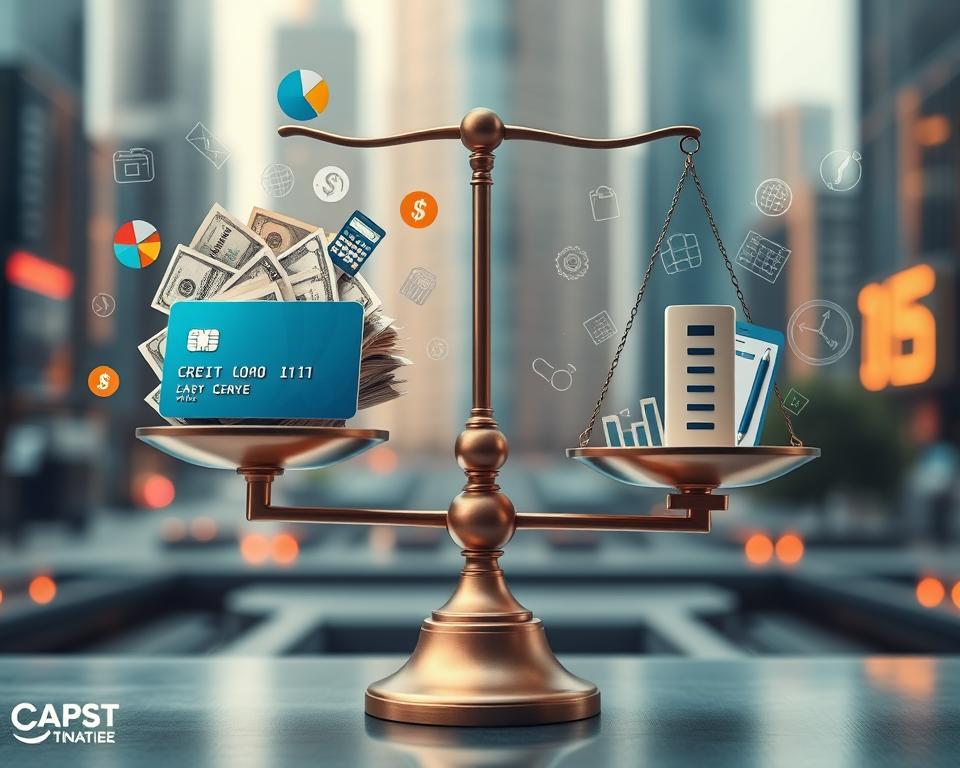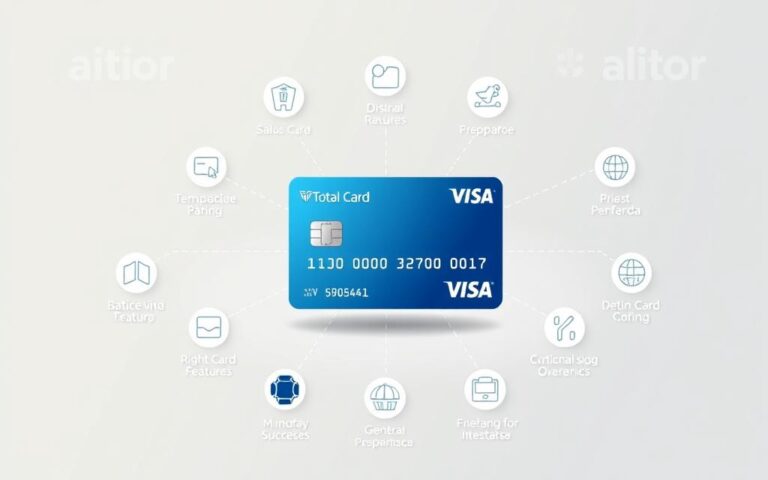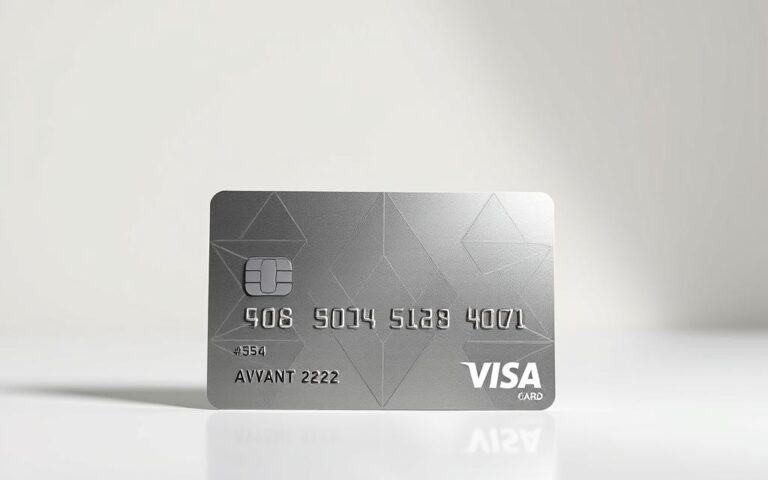Advertisement
Did you know making small changes can really boost your credit score? For those with “fair” or “bad” credit, improvements can be huge. Rod Griffin, an expert at Experian, says even minor tweaks matter a lot. If boosting your credit is your goal, it’s crucial to know how your score works. We’ve filled this article with top Credit Score Tips. They’ll help you repair and improve your credit fast.
Understand What a Credit Score Is
A credit score is key to your financial status. Knowing what it means and why it’s vital can help improve your financial health and open doors for you. In 2023, the average FICO Score in the U.S. was 715. This shows what credit scores are usually like.
Definition of a Credit Score
Your credit score is a three-digit number based on your credit reports. It shows lenders how trustworthy you are with credit. A score above 700 is good. FICO and VantageScore are two main types of scores. For example, a good FICO Score is between 670 and 739. A good VantageScore is between 661 and 780.
Importance of a Good Credit Score
Having a good credit score does more than you might think. It affects many parts of your finance life, like:
- Loan terms and interest rates
- Mortgage applications, where most lenders want at least a 620 score
- Car purchases, where a 670 or higher can get you better deals
A high credit score means you’re likely to pay back loans on time. This makes you eligible for loans with good interest rates. The things that affect your score include:
| Factor | FICO Score Weight | VantageScore Weight |
|---|---|---|
| Payment History | 35% | Moderately Influential |
| Amounts Owed | 30% | Extremely Influential |
| Length of Credit History | 15% | Less Influential |
| Credit Mix | 10% | Highly Influential |
| New Credit | 10% | Less Influential |
Understanding this can lead you to better manage your financial well-being. Knowing early on helps you avoid risks and improve your score gradually.
Check Your Credit Report Regularly
Knowing your credit report is key for good financial health. Checking it often spots potential issues early. You can get a free Credit Report annually to watch your credit and act when needed.
How to Obtain Your Credit Report
You can get your credit report for free from Experian, TransUnion, and Equifax. Go to AnnualCreditReport.com for these reports. This lets you check your financial health and ensure all is correct.
Identifying Errors on Your Report
Spotting errors in your Credit Report is crucial. They can range from wrong debts to late payments reported by mistake. Keeping an eye on your credit helps you find mistakes early, protecting your score.
Reviewing your report means looking at:
- Your name and social security number
- Status of your credit accounts
- Public records, including bankruptcies
- Credit checks by lenders
Even small errors can cause big troubles if not corrected. Always check your credit reports and report any wrongs to the bureau right away.
Pay Your Bills on Time
Paying your bills on time is key to managing your credit score. The Payment History Impact is crucial in judging your creditworthiness. In fact, making payments on time makes up 35% of your FICO score. This is the most important factor in your credit score. If you fall behind, it can harm your credit for seven years.
The Impact of Timely Payments
By paying bills on time, you show lenders you’re reliable. Meeting deadlines improves your FICO score. It may also get you better loan terms later. Regular on-time payments prove you can handle debt well. They build a strong financial foundation.
Setting Reminders for Payments
To not miss payments, use Automatic Payment Reminders or calendar notifications. This keeps you on track, even when busy. It helps you maintain a good payment history. This way, you lower the risk of late payments. It also helps improve your credit score.
Reduce Your Credit Utilization Ratio
The Credit Utilization Ratio is crucial for your credit score. It’s the total balance on your cards divided by your total credit limits. It’s shown as a percentage. Lenders like it when this number is low. It shows you’re handling your finances well. Aiming for 30% or less helps boost your score.
What is Credit Utilization?
Credit utilization counts for 20% to 30% of your score. Keeping it low is key to looking good to lenders. With a lower ratio, you might get better rates on loans and mortgages. So, it’s important to keep an eye on and manage your credit utilization well.
Strategies to Lower Your Utilization
To boost your credit score, manage your credit utilization better. Here are some smart ways:
- Pay down balances to lower your ratio.
- Ask for higher credit limits but don’t increase spending.
- Pay on your cards twice a month to lower the balance.
- Use balance alerts to watch your spending and stay under 30%.
- Distribute purchases across various cards to keep each balance low.
- Pay your bill before it’s reported to credit bureaus for a better score.
Using these tips can help you handle your credit better. This will help improve your credit score.

Diversify Your Credit Mix
Improving your credit with Credit Mix Diversification is a key strategy. It involves handling different types of credit. This is important for a better credit score. Having a variety like credit cards and loans shows you’re responsible with various debts.
Types of Credit Accounts
It’s essential to know the different types of credit. Let’s look at the common ones:
| Credit Type | Description | Examples |
|---|---|---|
| Revolving Credit | Credit that allows you to borrow and repay repeatedly. | Credit cards, retail credit cards, home equity lines of credit |
| Installment Credit | Credit that is borrowed in a lump sum and paid back in fixed payments. | Mortgage loans, personal loans, auto loans |
| Other Loans | Loans that are not part of the traditional credit mix. | Payday loans, auto title loans, buy now, pay later loans |
Benefits of Diversification
A diversified credit mix offers several benefits:
- Improving your credit score: A good mix can make up to 10% of your FICO® Score.
- Demonstrating responsible credit management: Lenders see how well you handle different account types.
- Access to better credit terms: A varied profile can get you better rates and limits.
- Mitigating risks: Using just one type of credit is risky; diversifying reduces that risk.
Keep your credit mix strong by applying for new credit only when needed. Managing multiple accounts poorly can hurt your score. With a balanced approach, your credit mix can improve. This helps in building a better credit profile.
Avoid Opening Too Many New Accounts
Managing new credit accounts needs careful thought. Especially, when figuring out how each credit inquiry affects your score. Every time you apply for credit, a hard inquiry is made. This can lower your score for a bit. Too many credit applications may look bad to lenders. It’s key to find a good balance in managing your credit.
Understanding Hard Inquiries
Hard and soft inquiries are important for your credit report. Hard inquiries happen when you apply for a new card or loan. They stay on your report for two years. But, FICO Scores look at inquiries from the last 12 months only. The effect on your score is small. But, too many hard inquiries might lower your score, especially if your credit history is short. Opening new accounts can also make the average age of your accounts younger, which might hurt your score.
Best Practices for Managing New Credit
Here are some good rules for handling new credit accounts:
- Only apply for new credit when you really need it.
- Go for prequalification offers that usually lead to soft inquiries.
- Try to have different types of accounts to better your credit mix. But, be careful not to open too many at once.
- Keep an eye on your credit report to check new inquiries and its accuracy.
- Keep your credit utilization low, ideally below 30% across all accounts.
Keep Old Accounts Open
The age of your credit accounts is key for your overall credit score. Keeping old credit accounts can hugely improve your Credit History Length. By understanding how account age affects your score and the perks of old accounts, you can make smart credit decisions.
How Account Age Affects Credit
Account age matters a lot for your credit score, making up about 15% of it. If you close an old account, your average account age might drop. This could lower your score. But, keeping old accounts open helps keep a longer credit history, which looks good to lenders. This is extra important if you don’t have many accounts. It helps make your credit stronger.
Benefits of Long-Standing Accounts
Old accounts boost your credit score and bring more benefits. Some perks include:
- Building a strong credit history, which impresses lenders.
- Helping keep a low credit utilization ratio by upping your total credit.
- Lowering the risk of credit fraud by keeping accounts in use.
- Avoiding high interest rates and issues when asking for new credit.
To get the most out of these advantages, try making small purchases on your old accounts regularly. This keeps them active and helps you avoid debt, while also improving your payment history. Staying focused on your Credit History Length can lead you to a better credit score.
| Account Age | Potential Impact on Credit Score | Recommended Action |
|---|---|---|
| 1-2 years | Minimal impact if kept open | Consider keeping open if no fees are attached |
| 3-5 years | Moderate positive impact | Make small buys to stay active |
| 5+ years | Big positive impact | Keep as active accounts for the best score |
Use Credit Responsibly
Managing your financial health well means using credit wisely. When you use your credit card for small buys, lenders see you’re good with money. This doesn’t just help your credit score; it also opens the door to rewards and benefits credit cards offer.
Making Small Purchases
Small purchases help you use your credit smartly. Keeping your credit use under 30% is what experts suggest. So, use just part of the credit you have. This helps you build a good payment history.
Paying Off Balances Monthly
Paying off what you owe each month prevents extra interest. If you’re late, it could hurt your credit report for seven years. Paying on time keeps your credit score safe. Be aware of the different kinds of APR on your card:
| Type of APR | Description |
|---|---|
| Purchase APR | Interest rate on outstanding balances not paid off before the grace period ends. |
| Penalty APR | Increased interest rate due to missed payments, affecting future purchases. |
| Cash Advance APR | Higher rate linked to cash advance transactions. |
| Balance Transfer APR | Lower rate for transferring balances from one card to another. |
By paying on time, you keep your finances stable. Look for cards that don’t charge for unauthorized uses and no annual fee. This way, your credit score can only get better.

Become an Authorized User
Becoming an authorized user on someone else’s credit card can boost your credit. It lets you use the primary account holder’s good credit habits to your advantage. This way, you can speed up Credit Score Improvement without being directly responsible for payments. This method works well if the primary holder is good with payments and keeps their credit use low.
What it Means to Be an Authorized User
As an authorized user, you get a card under someone else’s account. You aren’t responsible for paying the bill. You can use their credit line, which can help your credit score grow. Know how this role can affect you, especially if the main cardholder misses payments. Their habits can impact your credit too.
Benefits of This Strategy
- Access to higher credit limits can lower your overall credit utilization, significantly aiding in Building Credit.
- Payment history from the primary account holder contributes positively to your credit score, given that it accounts for about 35% of the FICO® Score.
- Being added to an account with a lengthy payment history supports the establishment of a robust credit profile.
- This approach enables individuals with thin credit files to kickstart their credit journey effectively.
- Clear communication with the primary cardholder regarding spending and payment can enhance the overall credit-building experience.
Make sure the card issuer reports authorized user activity to credit bureaus. This ensures you get the full benefits. Watching your credit regularly lets you see how well this strategy works for Credit Score Improvement.
| Factor | Percentage Impact on FICO® Score |
|---|---|
| Payment History | 35% |
| Credit Utilization | 30% |
| Length of Credit History | 15% |
Consider a Secured Credit Card
Secured credit cards are great for building credit. They help you start a credit history and can boost your score. Usually, you need to pay an upfront deposit. This amount becomes your credit limit.
For instance, a $500 deposit means a $500 credit line. This makes secured credit cards good for people wanting to better their credit status.
How Secured Cards Work
Using a secured credit card is simple. You make a security deposit, often between $200 and $500. This deposit sets your credit limit. It’s like a safety net for the bank, giving a chance to those with little or bad credit history.
If you use it right, by paying on time and not overusing it, your credit score can get better quickly, sometimes in just six months. After showing you can manage it well, you might get an unsecured card, which helps even more with your credit.
Tips for Using Secured Cards Wisely
Here are some tips to get the most from your secured credit card:
- Always pay on time to avoid fees and help your score.
- Keep how much you spend under 30% of your limit.
- Check your credit score now and then to see your progress.
- Buy small things with the card, not big-ticket items.
- Think about moving to an unsecured card when your score hits 630 or more.
Using your secured card in these ways can be a key part of building good credit. It sets you up for more chances and financial security. Smart use of secured cards matches well with plans for improving credit over time.
Monitor Your Credit Regularly
Keeping an eye on your credit is key for a good credit report. Using the right tools and services helps you stay updated on your credit status. This is very important for healthy finances in the long run.
Tools for Credit Monitoring
There are several services to help monitor your credit. Here are some options:
- Experian: Offers real-time alerts, monthly credit reports, and tracks your FICO® Score.
- IdentityForce®: Comes with full monitoring features like dark web scans and fraud alerts.
- AnnualCreditReport.com: Lets you check your credit report for free each week from every bureau. This makes regular checks easier.
Setting Alerts for Changes
Setting alerts for changes in your credit is a smart move. Getting notifications for any strange activity lets you act fast. This can prevent damage to your credit score. Here are some important practices:
- Set up alerts for new inquiries to stop fraud early.
- Keep an eye on your payment history to ensure accuracy.
- Watch for debts in collection and any public records for errors.
Using these steps keeps you well-informed. It also helps spot issues early on. Regularly checking your credit is key for maintaining good credit health.
Be Patient and Stay Consistent
Improving your credit score takes time, patience, and consistency. Actions like timely payments and lowering your credit use can help quickly. Yet, big changes often take six months to a year.
For major issues, like overdue accounts, it may even take up to seven years. This shows how long-term commitment is crucial for credit score improvement.
Understanding Timeframe for Improvement
Your credit score depends on many factors. Payment history and amounts owed are the most important. Keeping your credit use below 30% and having a variety of credit types helps your score grow.
Immediate improvements are possible with good credit habits. Still, reaching long-term credit goals needs continuous effort. Every positive action helps your credit profile get stronger over time.
Importance of Consistency in Efforts
Being consistent in managing your credit is key. Regularly checking your credit reports can spot errors that hurt your score. This lets you fix them.
Also, making payments on time is crucial. It makes up 35% of your credit score. Building a good credit profile is a long journey. But it’s worth it for better loans and financial chances in the end.



